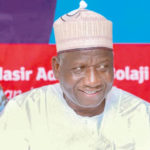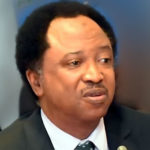
Executive Director, Civil Society Legislative Advocacy Centre (CISLAC) Auwal Ibrahim Musa studied Political Science at the Bayero University, Kano. He is a human rights, anti-corruption, policy and legislative advocacy activist. He is also chairman, Zero Corruption Coalition (ZCC) and National Contact Person, Transparency International. In this interview with Senior Deputy Editor, Sanya Adejokun, he spoke on sundry national issues.
THERE was pandemonium in many areas of Abuja concerning the Shiites and the security agencies clashes. The protesters were demanding release of their leader, Sheik El Zakizaki. Do you see any breach of freedom here?
Well, as far as we are concerned, every human being has certain fundamental rights and dignity that God has given. Those are non-negotiable rights: and that is right to life, right to have a decent living, and right to be protected against illegal incarceration. The continuous incarceration and also reckless use of life ammunition on protesters that cannot be seen carrying weapons or attacking the state, we think this is too much. Our security agencies need to respect the right of Nigerian citizens to express their dismay over the state of affairs in this country. It will be absolutely wrong for anybody to think that he or she has the license to take the life of another. It is not acceptable, and we will continue to draw the attention of the government to the implications of this.
ALSO READ: Rivers: INEC rejects APC’s list Says no extension of deadline
There are so many problems facing the country. We are not yet done with the Boko Haram; we are not yet done with the Biafra agitators. We are not yet done with the Niger-Delta militants. We are not yet done with the issues between the farmers and herders. Now, for you to come and plunge us into another round of violence or crisis with this group, I think, is over stretching the strength of the security agencies. And it does not show that our security people are tactical. You don’t necessarily need to always use force to bring down or to control a situation. There are many mechanisms that you can use such as deploying dialogue, negotiations, or a lot of other things to save the lives of people. The number of people killed and wounded is too much for the nation, and I don’t think that any right thinking person will justify the use of life ammunition on protesters that are armless. I think government needs to do everything possible to initiate dialogue with this group, because, you can see that they have been consistent in the demand for their leader to be released to receive medical attention, and also to stop the government to stop persecuting and prosecuting their members for expressing their opinion on the state of the nation.
I think it is important for the Nigerian government to sit down and dialogue with this group and other groups, because killing is not the best option. We don’t think the approach of this rampant killing would solve whatever problem that the Nigerian government considers is posed by this group.
In that light I want you to assess human right record of Nigerian governments since 1999. How far has democracy been entrenched?
I think one of the major challenges that we have is the absence of democratic control of security in Nigeria. And because of the history of the country, we came from the military totalitarianism and dictatorship. Government is wont to respond to every issue with equal proportion, in that balanced response approach, and that is not really okay. We have seen that all over the world, governments, nations have deployed strategy to adopt peaceful resolution to misunderstandings. It is natural that in a society, there must be misunderstanding, but what will make it much more responsive for both sides, is to see how this problem can be resolved peaceably without this unnecessary bloodshed that we are experiencing. So, I think it is important that our security agencies, be it the Police, the Army, and any other armed security outfit should have sufficient understanding on how they have to protect and promote the lives and security of Nigerians.
We are notunmindful of the fact that the security operatives themselves have been put in a very terrible condition whereby some wicked leaders do not provide enabling facilities and equipment for them to carry out the work including training and also creating military-civilian relationship that will usher better understanding on resolving fundamental problems in the society. I think it is important that our security agencies are retrained on human rights issues. It is important also, that the citizens understand their limit. Civilians must understand that engaging in any act that will be tantamount to security breach is not also good for the society.
The second issue that has to do with dealing with this matter is that Nigeria has a teeming young population with most of them not able to secure employment because now in Nigeria, from all the allegation we are hearing, you have to give bribe to get employment. The same thing also in the university, despite whatever mark you may have scored, you still have to, if you don’t have a godfather or godmother, you have to pay bribe to be admitted. Even when you are in the school, some wicked lecturers still extort money from them to pass your exams. So, with this kind of evil we are experiencing, and with the monumental corruption going on, and display of stolen wealth, by wicked public office holders, definitely, the society is readymade for the kind of situation we are finding ourselves in. If it is not Boko Haram, it is OPC, or Bakasi Boys or Zak Zaky group. If it’s not those ones, it is Biafran agitators. So, from all over the country, you see these kinds of readymade time bomb waiting to explode because of the inability of the ruling class to ensure that they create a favorable environment whereby Nigerians can be meaningfully engaged for job, or for even quality education.
When this government was campaigning, anticorruption was a very strong tool that it used in convincing the people. Three years down the lane, how will you assess that fight against corruption.
Because the government knows that we have 774 local governments, 36 states, and a Federal Capital Territory and a Federal Government. To seriously fight corruption, you must extend beyond the national level, and even within the national level, probably, President and Vice-President. President Muhammadu Buhari’s fight against corruption is a commitment without foundation because you need to have like minds at all levels to make sure that you are not alone, but that at all levels of government, you have people who share such aspiration, who are ready to do this and support the fight against corruption, otherwise, you will just be doing window-dressing because of the federal system that we have. And because you have not deliberately and consciously recruited people who would be involved in the fight against corruption. I am happy we have been able to advocate for the adoption of a national strategy in the fight against corruption. We are hoping that government will begin to implement that from community to local government, to state, to region, to national level. With that, getting everybody involved in the fight against corruption, the police, the army, the security agencies, the civil society, the community leaders, the religious leaders, everybody must play a role in the fight against corruption. So, when you look at the effort so far being put in place by government, yes, we can see some noticeable effort, but at the state and local government levels, we have a zero achievement in that place, there is nothing to show that anything is being done. That is why the fight against corruption must take a dimension of a national collectivity.
When we fight corruption, it is ultimately for the betterment of society, for human welfare. This government has also tried to introduce some welfare packages such as school feeding, trader money, N5,000 naira for the poorest of the poor, etc. In your view, what impact have these made in the lives of Nigerians.
As much as we have seen these touch the lives of some poor Nigerians, we would have preferred something sustainable. We wanted a system that will outlive this government, and there is no foundation or legal framework that has been put in place to ensure that the victims of poverty, the victims of corruption are able to access opportunity beyond this government. It shouldn’t be limited to the tenure of this administration. if we are serious about poverty eradication, we should have a more structured system whereby we are deliberately phasing out poverty. Dashing money alone, is not the solution to poverty. I think what is important is to be able to engage in more production, productivity, industrialisation. These are the ways you can guarantee people’s continuous livelihood because government has limits at which they will continue to dash free money to people. But if government creates an enabling environment, for example, if you have constant supply of electricity, if you have road infrastructure, many Nigerian will be able to work and earn a living instead of them to be waiting for N5,000 naira every month which will not in any way address their problems.
So, I think we need to deal with this matter in a more structured and fundamental way. Yes, in the interim, the school feeding is helping those parents who don’t have the means to feed their kids but as good as that is, we need to have a more systematic approach to this matter. We need to institutionalize a system that would outlive this government if we want to really record success beyond just this administration.





